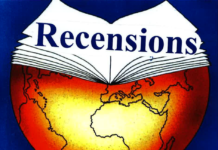Téléchargez l’article au format PDF
Alexis TROUDE
Résumé : Les Balkans sont redevenus, à l’aube du XXI° siècle, un lieu de confrontation entre sphères d’influence aux intérêts antagonistes. Les géopolitiques d’espaces impériaux (UE), de nations puissances (Russie, Chine) et d’États transversaux (transversale verte) trouvent ici, au cœur de l’Europe, un lieu à la fois d’expression de leur puissance, mais aussi sont placées aux limites de leur sphère d’influence. L’espace d’ex-Yougoslavie serait-il l’exemple même de la perpétuation de la Guerre froide, ou n’est-il qu’un exemple de la recomposition d’un monde multipolaire ?
Mots-clés : Intégration européenne, OTAN, Eurasie, Balkans occidentaux, Gazoducs, Russie, États-Unis, Chine, Turquie.
THE WESTERN BALKANS BETWEEN THE WEST AND EURASIA
Abstract : At the dawn of the twenty-first century, the Balkans have once again become a place of confrontation between spheres of influence with antagonistic interests. The geopolitics of imperial spaces (EU), powerful nations (Russia, China) and transversal states (green transversal) find here, in the heart of Europe, a place for the expression of their power, but are also placed at the limits of their spheres of influence. Could the ex-Yugoslav space be the very example of the perpetuation of the Cold War, or it is only another example of a multipolar world in construction ?
Key words : European integration, NATO, Eurasia, Western Balkans, Gas pipelines, Russia, United States, China, Turkey.








